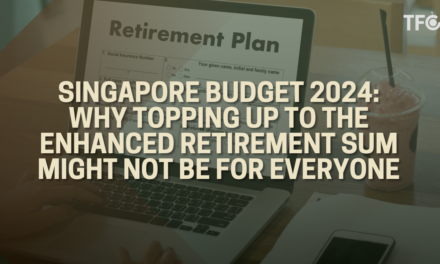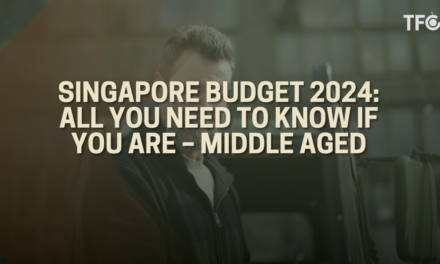Examining the Survival of the Property Ladder in Singapore’s Budget [ft Prof Lee Kwan Ok & Nicholas Huang]
From HDB to Private Properties: A Smart Move or a Dying Strategy? Experts Weigh In
The debate around housing affordability and pathways to home ownership in Singapore continues. On a recent episode of the Alternative Budget Discussion following the recent Singapore Budget 2024 announcement, hosts Dawn and Rakaesh dive into this complex issue with real estate experts Professor Lee Kwan Ok and Nicholas Huang.
Expert guests:
• Prof Kwan Ok, Lee Dean’s Chair Associate Professor, NUS Business School, National University of Singapore
• Nicholas Huang, Real Estate Consultant, Hutton
They aimed to discuss three key questions:
1. Is public housing still affordable?
2. Is transitioning from HDB to private property still viable?
3. And can property be relied on for retirement?
Affordability on the ground
Nicholas shares his family’s experience choosing a resale flat due to long BTO waits. “Resale is not cheap, but by choosing shorter leases, we found an affordable option.”
Professor Lee provides helpful context. “Singapore’s affordability ratio of below 5 is very healthy compared to Hong Kong at 20 or Seoul at 10+”. While prices rise with economic growth, many affordable choices exist when compromising on “area, size, location, lease or financial aids.”
Affordability is subjective. “A $5M property is affordable to some, but extremely unreachable for most.” Government policies like grants help many households become homeowners.
It was also discussed: that the price-to-income ratio, a standard measure of affordability, is below 5 in Singapore, while cities like Hong Kong and Seoul have ratios of 20 and over 10, respectively. It is essential to consider the various housing options available and the trade-offs individuals must make to achieve affordability. Factors such as location, size, lease duration, and financial incentives play a role in determining the right housing choice.
Transitioning from Public to Private Properties:
The discussion then shifts to the question of whether it is still viable to transition from HDB to private properties. Professor Lee emphasises the importance of personal preferences and trade-offs when making such a decision.
“Not everyone has the same demands; you can make trade-offs.”
She explains that individuals must consider their priorities, whether it be a lower-priced housing option with compromises or paying a premium for a preferred location. The key is to define affordability based on different income groups and understand the challenges faced by those in need of more affordable housing.
Would continued government intervention harm price discovery?
Nicholas says demand and supply still determine private prices, while the government aims to “delay flipping intervals through cooling measures.” Recent government land sales and new BTO options widen choices.
Property Investments for Retirement:
Rakaesh raised the question of whether a property portfolio remains a viable option for retirement planning or if depending solely on CPF Life is a better approach.
The conversation highlights the need to strike a balance between property investments and other financial instruments. While property can be a valuable asset, it’s crucial to diversify investments and consider factors like market conditions, rental income, and long-term sustainability. On relying on property, Professor Lee says homeownership builds wealth over time.
“Different options help demands get realised, and you progress to the next step.”
While prices rise, Singapore remains affordable compared globally. Savvy compromises and evolving policy aim to keep the property ladder climbing for years to come. With diversification and adapting to changes, the experts believe property can still play an important long term role.
If you are intrigued by the insights shared during the Alternative Budget Debate, listen to the full podcast episode on Spotify, YouTube, Google podcast or Apple podcast to gain a comprehensive understanding on the current state of Singapore’s property ladder, addressing the topics of affordability, transitioning from HDB to private properties, and property’s role in retirement planning. Overall, the conversation showcased the complexities and nuances of Singapore’s property market, providing listeners with valuable perspectives to make informed decisions regarding their housing and retirement plans.
Also, check out our other Alternative Budget Debate on what was announced, especially for CPF Shielding and Property Tax and if CPF is a reliable partner for Retirement for all Singaporeans.
If you belong to any of the following group, these are the benefits in store for you from the Singapore Budget 2024:
1. Middle-aged Singaporeans
2. Married Singaporeans with 2 kids
3. Retirees
4. Single Individuals under 45
Share us your thoughts on this episode and let us know what do you want to hear next.
You can now be our community contributor and make a pitch to have your favourite personality be on our show.
Join our community group and drop us your insights on this topic.


![Here’s a Simplified Guide you need to know about Income Tax in Singapore and Legally Reduce Your Tax Bills [ft IRAS]](https://thefinancialcoconut.com/wp-content/uploads/2024/04/maxresdefault-440x264.jpg)
![TFC Takes On Budget 2023: Will It Move Markets? [TFC Market Updates 20]](https://thefinancialcoconut.com/wp-content/themes/Extra/images/post-format-thumb-text.svg)
